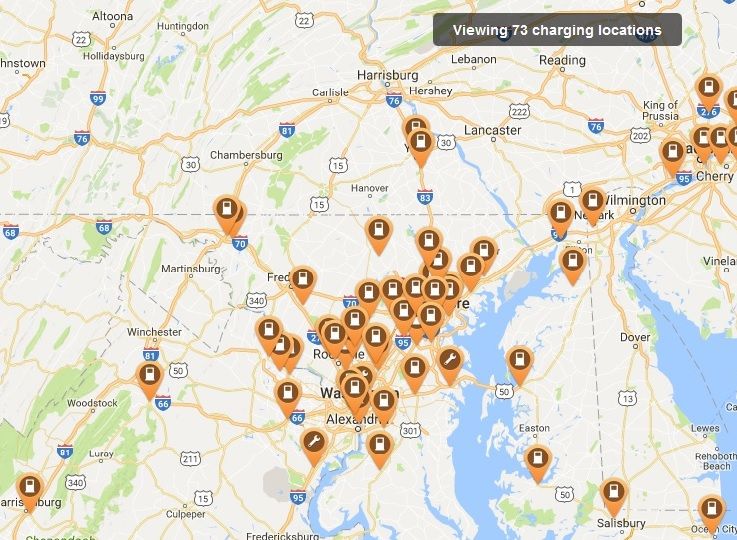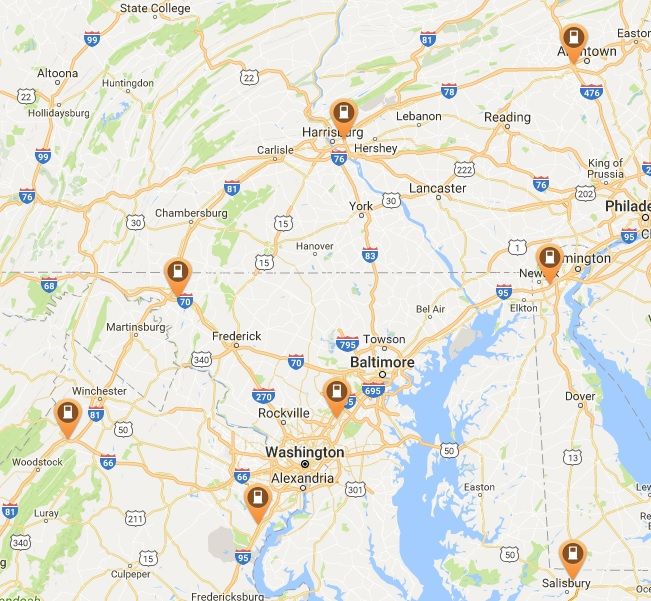You really, truly, don't get it. Why would you pay $0.25 to $1.00 per KWh for energy in your Bolt when you are near your residence and can pay far less? Only reason would be that you don't have a way to plug in at night. If that is the case, look for a J1772. Otherwise, the Tesla Supercharger network is far superior. The CCS map includes 24 kW EVSE's. I might as well add in all the HPWC designation chargers too then, the use case is identical, except that HPWC's are often free for patrons.
A Tesla owner with home charging in DC will almost always not care about the Superchargers in town. Drive 80-120 miles out... then look for charging locations. Everything within 80 mile radius of your residence is almost always something you will never use... only in a weird emergency.
I do get that you haven't owned a 200+ mile BEV before, so mentally adjusting to the difference may be hard. But come on... you have been absorbing this info for some time now. Maybe in about 6 months you will understand.
To go to NYC, for instance, you will want to charge to 100% overnight. Then drive as far as possible, preferably charging at around 10% SoC. You can actually sometimes make the trip without charging at all, but the destination must have a free plug. If you are charging along the way, you need one charging location. It should charge as fast as possible. It needs to have an open plug. It doesn't help if there are 8 separate locations with one or two plugs, you need one location with 8 plugs in northern NJ. They need to provide 80 kW for the lowest charging time. None provide 80 kW. All those CCS plugs near you do not help you at all. Now go look in northern NJ. The closest to NYC is a 24 kW CCS at a hotel. The next closest is a single plug EVgo CCS which is presumably 50 kW. One plug. $9.95 for 30 minutes. Gets you 90 EPA miles. If it is occupied, you get to wait or try to charge at 24 kW at the next location. If another Bolt owner plugged in just before you, the wait can be an hour and 15 minutes to plug in. Maybe you charge nearer to Philly just in case? Same kinds of issues.




